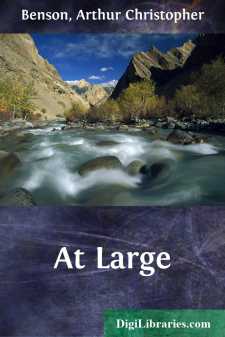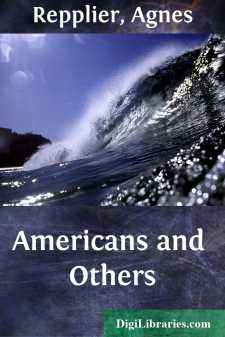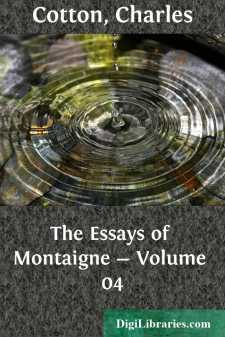Literary Collections
- American 84
- Ancient, Classical & Medieval 14
- Asian 1
- Australian & Oceanian 1
- Canadian 55
- Continental European 121
- English, Irish, Scottish, Welsh 179
- Essays 160
- General 24
- Letters 46
- Middle Eastern 1
Literary Collections Books
Sort by:
by:
Plutarch
Epicurus's great confidant and familiar, Colotes, set forth a book with this title to it, that according to the tenets of the other philosophers it is impossible to live. Now what occurred to me then to say against him, in the defence of those philosophers, hath been already put into writing by me. But since upon breaking up of our lecture several things have happened to be spoken afterwards in...
more...
I. THE SCENE Yes, of course it is an experiment! But it is made in corpore vili. It is not irreparable, and there is no reason, more's the pity, why I should not please myself. I will ask—it is a rhetorical question which needs no answer—what is a hapless bachelor to do, who is professionally occupied and tied down in a certain place for just half the year? What is he to do with the other...
more...
by:
J. Atwood Slater
PAINTING. From the WESTERN DAILY PRESS, Feb. 20th, 1901. AN IMPRESSION OF "ECCE HOMO." To the Editor of the Western Daily Press. Sir,—First impressions forced upon me by an inspection of the picture, "Ecce Homo," by Mons. de Munkacsy, would be succinctly expressed in few words. It is haply, although not highly, inspired. It constitutes a work of laborious but of average ability, and...
more...
PREFACE. An indistinct recollection of the very pretty little tale, called "The Bellows-Mender," suggested the plot of this Drama. The incidents are, however, greatly altered from those in the tale, and the characters entirely re-cast. Having long had a wish to illustrate certain periods of the French history, so, in the selection of the date in which the scenes of this play are laid, I saw...
more...
by:
Agnes Repplier
A Question of Politeness"La politesse de l'esprit consiste à penser des choses honnêtes et délicates." A great deal has been said and written during the past few years on the subject of American manners, and the consensus of opinion is, on the whole, unfavourable. We have been told, more in sorrow than in anger, that we are not a polite people; and our critics have cast about them for...
more...
by:
Henry Van Dyke
PRELUDEAN ANGLER'S WISH IN TOWNWhen tulips bloom in Union Square,And timid breaths of vernal airAre wandering down the dusty town,Like children lost in Vanity Fair; When every long, unlovely rowOf westward houses stands aglowAnd leads the eyes toward sunset skies,Beyond the hills where green trees grow; Then weary is the street parade,And weary books, and weary trade:I'm only wishing to go...
more...
by:
William Carleton
THE POOR SCHOLAR. One day about the middle of November, in the year 18—, Dominick M'Evoy and his son Jemmy were digging potatoes on the side of a hard, barren hill, called Esker Dhu. The day was bitter and wintry, the men were thinly clad, and as the keen blast swept across the hill with considerable violence, the sleet-like rain which it bore along pelted into their garments with pitiless...
more...
by:
Various
THE LIFE OF GEORG WILHELM FRIEDRICH HEGEL BY J. LOEWENBERG, PH.D. Assistant in Philosophy, Harvard University Among students of philosophy the mention of Hegel's name arouses at once a definite emotion. Few thinkers indeed have ever so completely fascinated the minds of their sympathetic readers, or have so violently repulsed their unwilling listeners, as Hegel has. To his followers Hegel is the...
more...
by:
Charles Cotton
He seems to me to have had a right and true apprehension of the power of custom, who first invented the story of a country-woman who, having accustomed herself to play with and carry a young calf in her arms, and daily continuing to do so as it grew up, obtained this by custom, that, when grown to be a great ox, she was still able to bear it. For, in truth, custom is a violent and treacherous...
more...
BRITANNIA. I. The people that now occupies England was formed, like the French people, by the fusion of several superimposed races. In both countries the same races met and mingled at about the same period, but in different proportions and under dissimilar social conditions. Hence the striking resemblances and sharply defined contrasts that exist in the genius of the two nations. Hence also the...
more...











